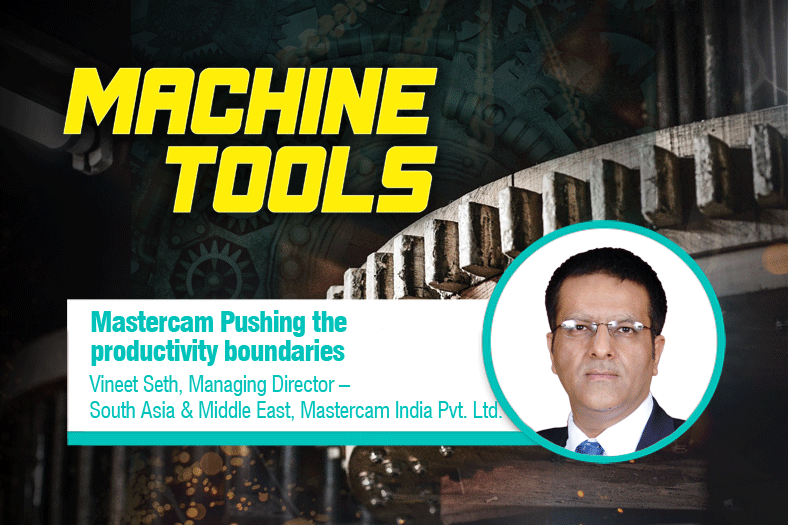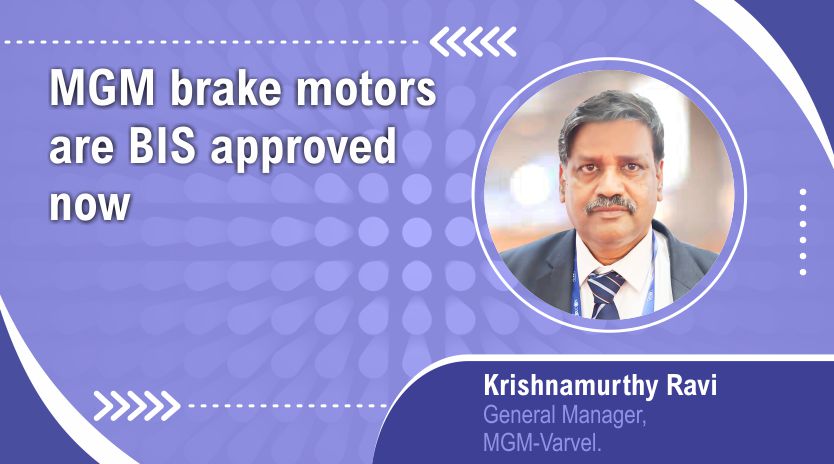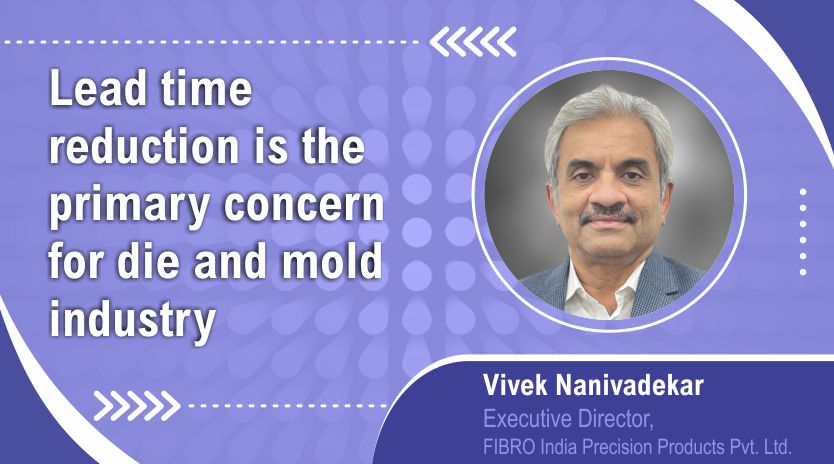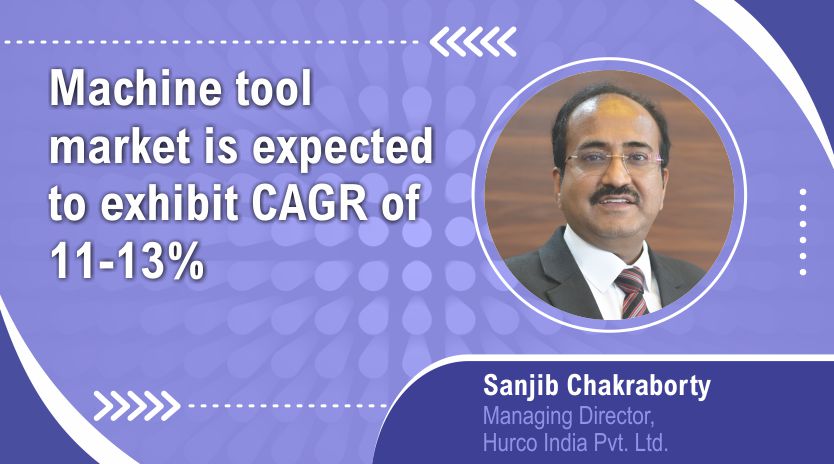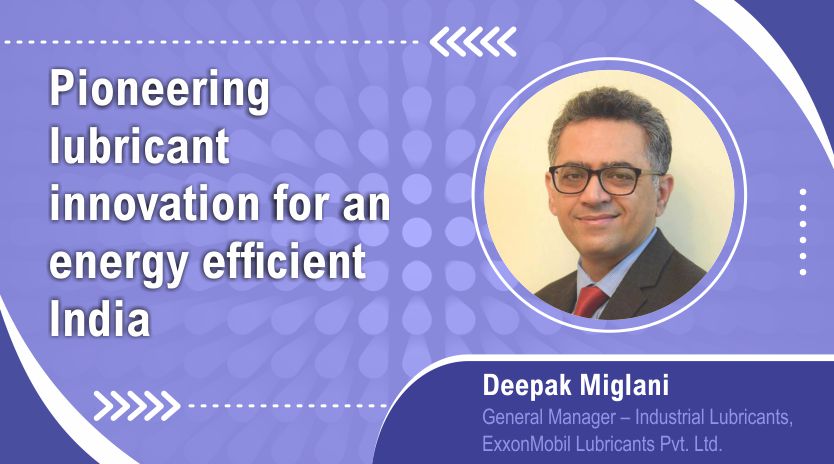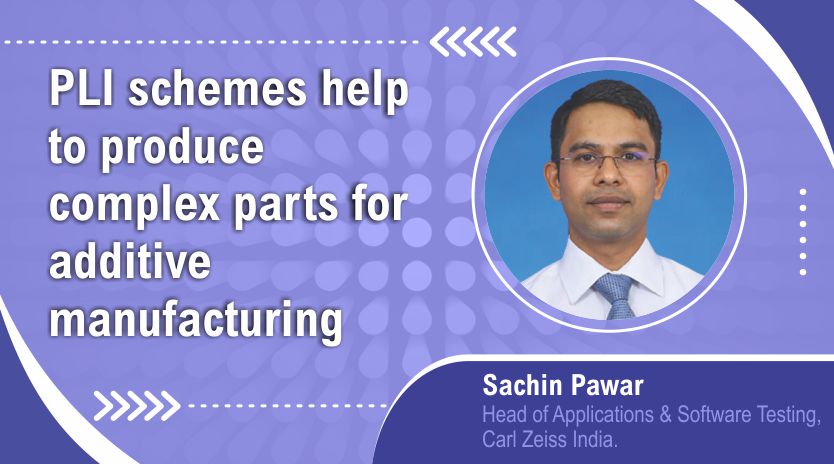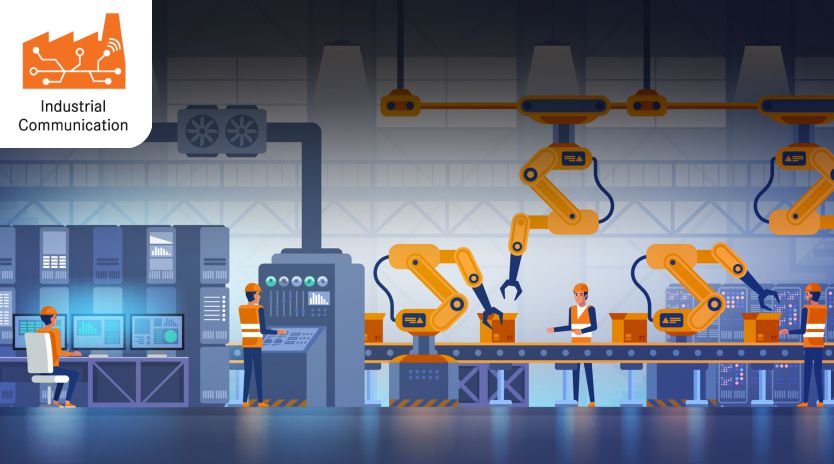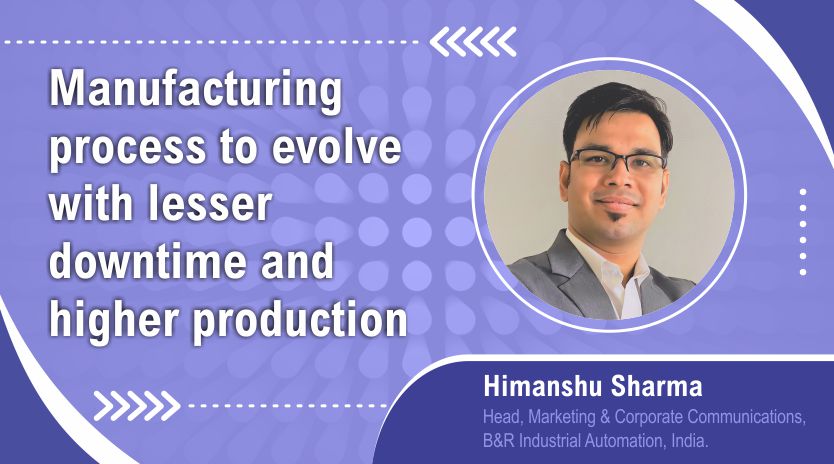Mastercam : Pushing the productivity boundaries
By OEM Update Editorial January 11, 2019 2:32 pm IST
Mastercam serves a lot of complex machining across diverse industries. Vineet Seth, Managing Director – South Asia & Middle East, Mastercam APAC discusses their journey, and how Mastercam is aiding in increasing the machining productivity, while reducing the overall production costs.
Please walk us through your company’s journey in India and globally.
Mastercam is a well-known global brand; a name that is synonymous with CAM. CNC Software Inc., the parent company of Mastercam was established 35 years back. Mastercam India was established in 2016, with a view to increase the brand’s presence in South Asia and Middle East regions, as well as to back up the world-class product with people who eat, breathe and live CAM, so to say. We’re a team of people who have experience taking a CAM brand with no presence to being the No.1 CAM product in the region, in our previous roles. Together, with Mastercam’s progressive leadership and the dedication of our India team, we have been able to reach exponential growth in the region, the highest ever in the past 25 years of Mastercam’s presence in India.
How do you gauge the status of the Indian market as compared to the global one?
In the manufacturing sense, the Indian manufacturing market is growing at a rapid pace. Other than a slight slowdown in 2008-09 and a bit in 2013, we have seen CNC machines being purchased at a rate that is growing in double digits since then. Overall, we have seen some steady and sturdy steps being taken that have long term beneficial results. The market size in India is also growing, owing to new entrepreneurs setting up new manufacturing and job-working units.
Please give us a brief about Mastercam 2019.
Mastercam 2019 was developed to streamline the manufacturing process from job setup to job completion. Not only does it increase machining productivity, it also reduces overall production costs with new 2D through multiaxis milling automation features, CAD and model preparation improvements, expanded 3D tooling, Accelerated Finishing™, and powerful turning and Mill-Turn enhancements.
Re-engineered chamfering and holemaking strategies, plus the new Multiaxis deburring provide new levels of time-saving automation and simplicity. New milling toolpath strategies, like the high speed Equal Scallop toolpath, offer both machining performance and surface finish improvements. The new release includes additional support for the Sandvik Coromant PrimeTurning™ method, enhanced grooving, bar feed, and other features for turning and mill-turn applications, plus new lathe and Swiss-style machine support. Mastercam 2019 also includes enhanced CAD functionality and 3D model import support, improved part preparation and fixture setup tools, additional PowerSurface capabilities, and expanded support for Model-Based Definition (MBD). Mastercam 2019’s expanded digital tool library capability delivers accurate, 3D tool assembly models, with access to the latest cutting tool technology and updates for Sandvik Coromant CoroPlus® and MachiningCloud™ platforms. Mastercam 2019 also expands Accelerated Finishing with support for taper and lens style tools aimed at 75% cycle time improvement for finishing operations with superior surface finish quality.
There was a statement about Mastercam. ‘Whatever you can imagine, Mastercam makes it faster, easier, more efficiently’; how practical is this? How effective does Mastercam prove to be in fulfilling the specific needs of the customer?
The statement is true as it is practical. This is a result of our experience with machining, as well as the collective experiences of our partners, customers and industry colleagues. Having an in-house manufacturing labs allows us to ensure that we test our toolpaths against the most challenging of jobs that are usually provided by our customers, partners or industry colleagues. This allows us to push our developers and testing engineers beyond the envelope to come out with innovative strategies and processes.
Dynamic Machining, Accelerated Finishing and our collaboration with Sandvik on the PrimeTurning front, are leading examples of how we have managed to think differently and act consistently, while innovating at the same time.
How to plan for and invest in a new CAD/CAM system?
It is extremely vital for companies to invest in the right CAM software. A thorough plan starting with understanding the following is most vital:
• The brand
• The reliability and stability of the organisation
• The people driving the organisation – both at the HQ as well as the local levels
• The quality of technical support and support staff
• Global presence, as well as presence in peer groups
• Product compatibility and availability of post processors for a wide range of CNC machines.
Once these are established, a CAM system for complex machining must have the following capabilities
• Accurately import and/or repair CAD models from various CAD systems
• Simple to learn and easy to use, yet powerful enough to achieve the most complex task
Mastercam offers CAD for CAM and therefore, the pointers from this perspective are
• CAD for CAM is a field that is gathering a lot of pace. With Agile systems in place, a lot of organistions are opting for Direct Design methodologies, unlike the traditional system of constraint modelling.
• Getting a part file from an outside source can pose unique challenges. You might need to repair a surface, cap an area, create an electrode, or just make sure your fixtures are represented on the part.
• From robust surface creation and editing to “push-pull” solid model editing, CAD for CAM gives you the tools to bring a part, from the designer’s desk to your machine, fast.
Some of the capabilities of CAD for CAM are:
• Easy geometry modeling and editing
• Create parametric and NURBS surfaces using loft, ruled, revolved, swept, draft, and offset creation methods
• Create splines on surfaces using a variety of functions including surface projections, surface intersections, edge curves, slicing curves, and parting lines
• Region chaining explicitly defines the area for a 2D dynamic milling toolpath by simply selecting the face to be machined and face to be avoided, while treating the selections as complete machining chains
• Analyse surface curvature to identify undercuts and minimum radius.
• Quickly modify parameters such as line length and arc radius after creation
• 64-bit support lets you take full advantage of your 64-bit hardware and operating system
What’s the latest or most exciting customer application you have? What are you looking forward to?
Mastercam serves a lot of complex machining across diverse industries. Considering the automotive domain, the most exciting application for Mastercam, is that over 50 machines are programmed with Mastercam products in three facilities at Roush Yates Engines, Roush Yates Manufacturing Solutions, and Roush Yates Performance Engine Group in Mooresville, NC. These Mastercam product line assist in machining engine components for the NASCAR FR9 and the IMSA twin-turbo 3.5L Ford EcoBoost V6 racing engines. Thousands of components are milled, drilled, and inspected to strict quality standards prior to engine assembly. It is due to this fact, that Roush Yates Engines has signed a partnership with Mastercam to be the “Official CAD/CAM Software” of Roush Yates Engines.
Mastercam has been an integral part of many performance racing companies since the 1980s and it’s exciting and rewarding to be able to contribute to the sport in an official capacity with Roush Yates Engines.We look forward to being the de-facto CAD/CAM software to high value and high precision manufacturing and we continue to work towards this goal.
Tool utilisation factor is of paramount importance, considering that longer the tool life, higher the productivity.
Seth, Managing Director – South Asia & Middle East, Mastercam India Pvt. Ltd.
Cookie Consent
We use cookies to personalize your experience. By continuing to visit this website you agree to our Terms & Conditions, Privacy Policy and Cookie Policy.



